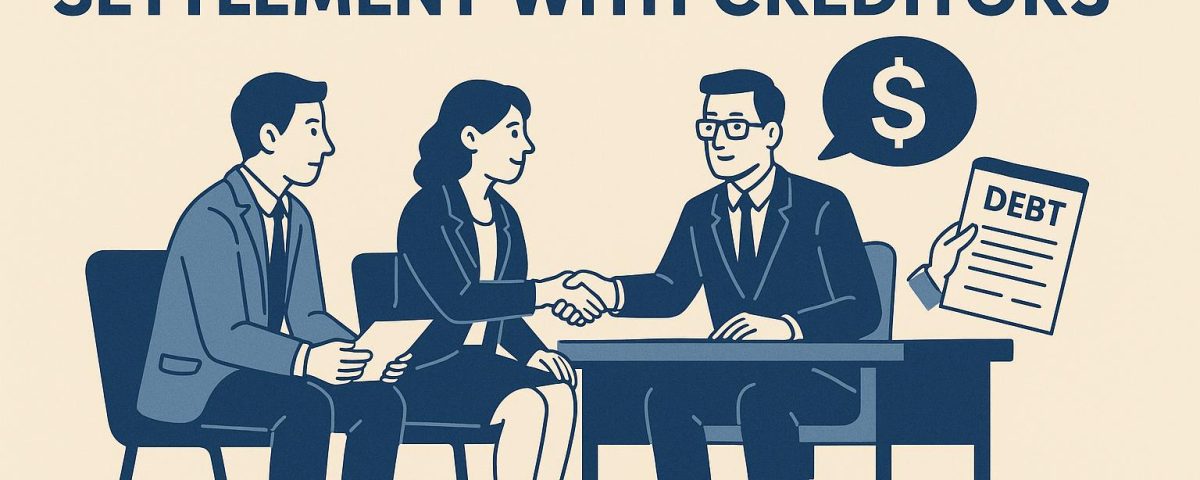Understanding the Basics of Negotiating a Settlement with Creditors
Negotiating a settlement with creditors can be a crucial step towards achieving financial stability. This process involves reaching an agreement to pay less than the full amount owed on a debt, which can alleviate the financial burden on a debtor’s shoulders. When creditors realize that a debtor might be unable to fulfill their obligations, they are generally open to negotiation in order to recover part of the funds owed.
Steps in Preparing for Negotiation
Assess Your Financial Situation: The first step in preparing for negotiation is to have a clear understanding of your current financial status. Begin by evaluating all aspects of your finances, including income, expenses, and the total debt you owe. This comprehensive analysis will enable you to determine how much you can realistically afford to offer as a settlement. Being aware of these financial details is the foundation of any negotiation because it provides you with a realistic basis for your offers and discussions.
Gather Documentation: Before entering into negotiations, it’s essential to gather all necessary documents related to your debts and financial obligations. This includes account statements, past correspondence with creditors, pay stubs, bank statements, and any other pertinent information. Having these documents on hand will not only help you in presenting your case effectively but will also be essential in ensuring that you’re prepared to substantiate your claims and offers during negotiations.
Communicating with Creditors
Initiate Contact: The process of negotiating starts by reaching out to your creditors to express your intention to negotiate a settlement. This initial communication can be done via phone, email, or a formal written letter. When making contact, it’s crucial to communicate clearly and respectfully. The goal is to establish a cooperative tone and express your willingness to resolve the debt amicably.
Offer a Reasonable Settlement: Once you initiate contact, the next step is to propose a settlement amount. It is vital to offer an amount that you can realistically afford to pay. Sometimes, offering a lump sum payment rather than opting for installments can be more appealing to creditors, as it provides them with immediate resolution and reduces the risk of default on future payments.
Negotiation Tactics
Be Honest: During the negotiation process, being honest about your financial hardships can engender goodwill from creditors. Transparency about your situation can lead to more favorable terms, as creditors are more likely to be flexible when they comprehend the severity and reality of your financial difficulties.
Stay Calm and Composed: Negotiations can inherently be a stressful experience, but it’s important to remain calm and composed. Stress can derail productive conversation and hinder your ability to think logically and make sound decisions. Therefore, maintaining a calm demeanor during negotiations is instrumental in facilitating a productive dialogue.
Finalizing the Settlement Agreement
Once an agreement is tentatively reached, the next step is to request a written document outlining the settlement details. This written agreement should encompass the settlement amount, due date, and any other terms that have been agreed upon. It’s crucial to thoroughly review this agreement to ensure that it aligns with what was verbally discussed and agreed. A detailed, accurately drafted agreement provides legal protection for both parties and ensures that there are no misunderstandings or disputes in the future.
Learn more about financial negotiations at the Consumer Financial Protection Bureau (CFPB).
Important Considerations: As you navigate the process of negotiating a settlement with creditors, it is worthwhile to consider consulting a financial advisor or a credit counselor. These professionals can provide you with tailored guidance and advice that fits your specific situation. They can help you understand the potential tax implications of a settled debt, offer strategies for negotiation, and assist in constructing a feasible plan for managing your finances moving forward.

